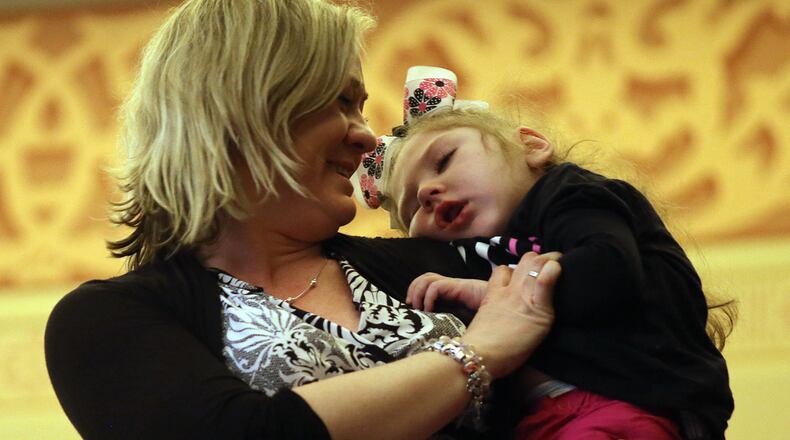Republican infighting doomed legislation that would have allowed limited use of medical marijuana and started to privatize the state’s beleaguered child welfare system. Now Gov. Nathan Deal is exploring administrative changes to carry out what lawmakers failed to do.
Deal has consulted with state agency heads about steps that would allow Georgia families to use cannabis oil to treat medical disorders until lawmakers return to Atlanta next year. And he said he’s considering signing an executive order to jump-start the foster care privatization push that failed last week.
The governor is sticking to a pattern of finding workarounds to back politically sensitive legislation that doesn't reach his desk. But he also risks charges of overstepping his office's authority — not to mention drawing comparisons to President Barack Obama, who is often attacked by conservatives when he issues executive orders for plans that don't get legislative approval.
Deal and his aides, though, signal that the political payoff might be worth the risk. Even fellow Republicans warned that the failure to pass these proposals during the past legislative session could haunt the GOP in November and embolden Democrats, who call Deal’s medical marijuana embrace an election-year change of heart.
Both legislative proposals fell victim to surprisingly public disputes between rival Republicans.
The push to privatize the state's child welfare system gained momentum this year after The Atlanta Journal-Constitution uncovered widespread failings by the state's Division of Family and Children Services. Deal initially endorsed the effort to privatize the bulk of Georgia's child welfare system but withdrew his support near the session's end. Senate sponsors who pushed ahead were blocked by House allies of the governor.
Deal said this week that he was worried that lawmakers had a “knee-jerk reaction” and expressed concern that private firms may not be ready to assume broader state responsibilities. But he said he is considering signing an order to create a scaled-back pilot program to test privatization, much like a version of the legislation that failed to pass.
“I think a pilot project can give us a chance to expand and address problems,” he said.
The medical marijuana bill took an equally twisted path before it was scuttled.
Powerful House lawmakers backed the medical marijuana bill, but Senate leaders who wanted to require insurance plans to cover autism treatment in young children tied the two proposals together. Both failed amid opposition in the House from power brokers who viewed the autism piece as an unfunded mandate.
The tiff boiled over on the Senate floor, where legislators from both chambers argued as the clock ticked toward midnight. Shortly before the session was gaveled to an end, state Sen. Fran Millar, R-Dunwoody, lamented his party’s failure to pass the legislation while adopting a sweeping firearms bill.
"We did nothing for kids, but we passed a gun bill," Millar said.
“All of us were moved by the families and the children that were involved with the medical marijuana bill, and I certainly think that all of us want to try to figure out if there’s something we can do to provide them with the kind of assistance they need,” Deal said.
With these moves, Deal is taking a similar tack he did last year when he pushed health officials to ban state employee insurance policies from covering abortion after lawmakers failed to pass similar legislation. And, like abortion, medical marijuana is fraught with emotion.
“The state of Georgia let our children down,” Cox said. “But to hear that Governor Deal is looking into other avenues to finding the assistance our children need gives so many parents in Georgia hope.”
Democrats see a cold political calculus at play. Democratic state Sen. Jason Carter, his party’s candidate for governor, said the bill died because the governor “failed to show any leadership” in the medical marijuana debate during the session.
“To do it now is nothing more than an election year about-face because he is afraid that Georgia voters will hold him accountable for his failures,” Carter said.
State Rep. Allen Peake, the measure’s chief sponsor, also bemoaned the legislative head-butting that made his proposal little more than a “bargaining chip.” But he praised the governor for trying to intervene where the legislative branch failed.
“When it comes to providing relief and hope to families and children in this state, I’m going to support any initiative that helps get this done,” said Peake, a Republican from Macon. “If it takes an executive order from the governor, by God we ought to be doing it.”
About the Author
Keep Reading
The Latest
Featured





